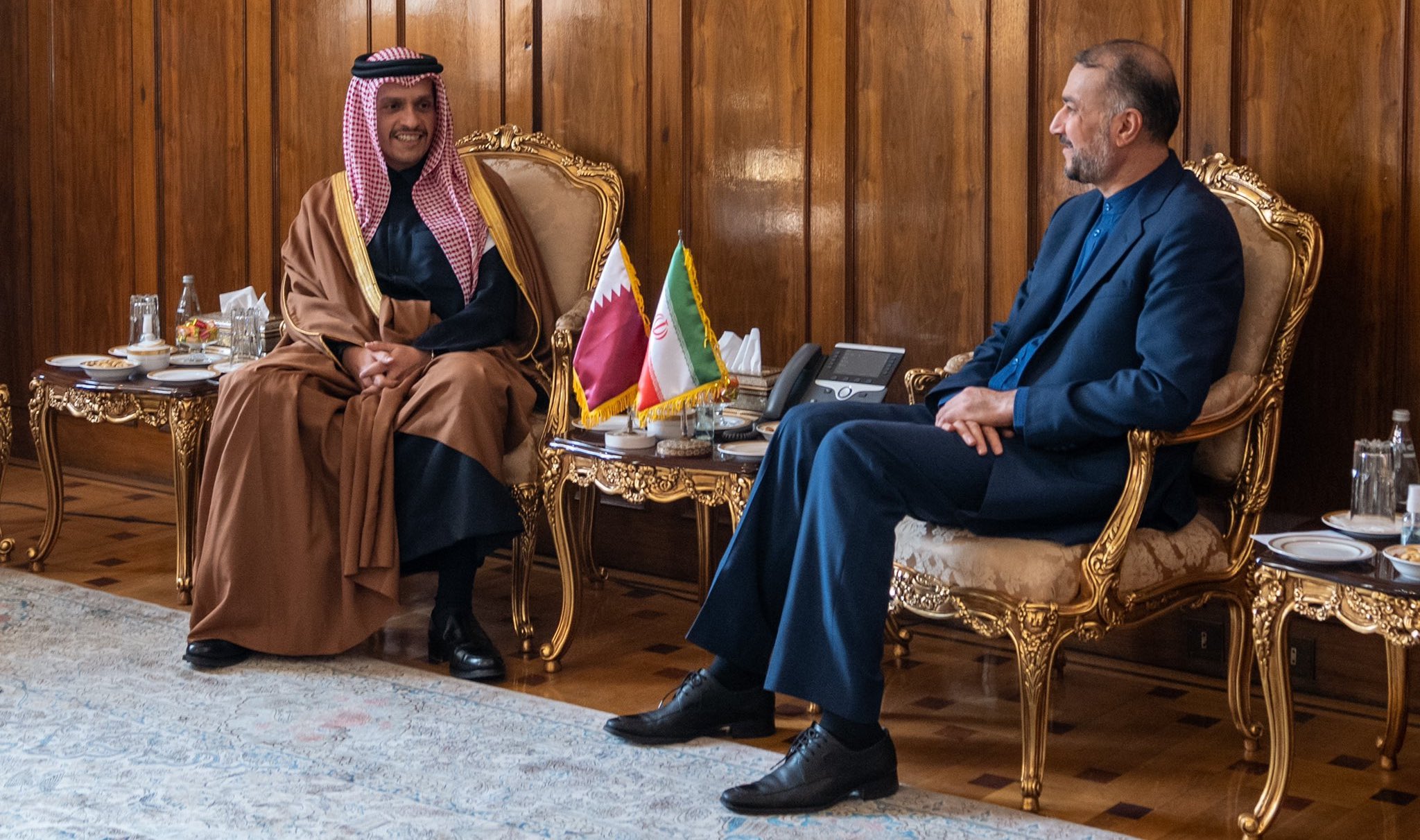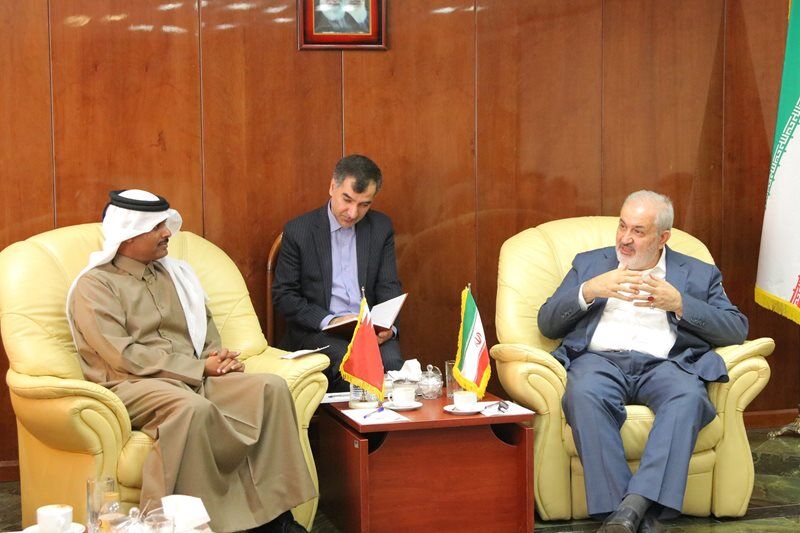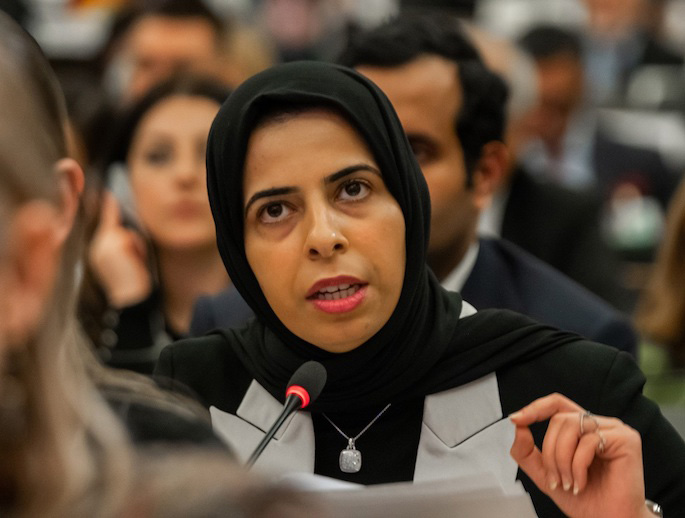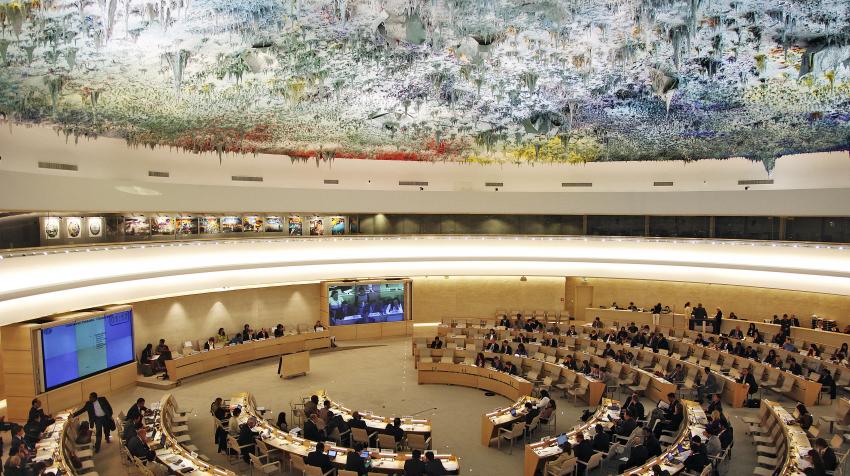The officials also discussed the ongoing genocide in Gaza, both agreeing there is a prevailing sentiment among many players for an immediate end to Israel’s relentless violence.
Qatar and the United States remain steadfast in upholding the existing agreement regarding Iranian unfrozen funds, Qatar’s Prime Minister Sheikh Mohammed bin Abdulrahman Al Thani assured the Iranian foreign minister in a phone conversation on Saturday.
“Al Thani said his country and the US are committed to the current deal and in line with an agreement between the Central Banks of Iran and Qatar, the agreement is being implemented,” a statement by Iran’s foreign ministry said.
Sheikh Mohammed “also spoke about the way Iran can use its assets in Qatar”, it added.
This reaffirms the commitment made under a historic deal brokered by Qatar last year, bringing together Iran and the United States which facilitated the exchange of five prisoners from both sides and paved the way for the release of approximately $6 billion of Iranian funds previously blocked by the Washington in South Korean banks since 2018.
In November, Iran’s Ambassador to Qatar Ali Salehabadi dismissed allegations by U.S. officials that the released Iranian assets were blocked in the Gulf country.
This came during an interview with Iran’s Islamic Republic News Agency (IRNA), where Salehabadi said that banking procedures are well underway, emphasising that the Iranian funds – now unfrozen as part of a prisoner exchange with the US – remain entirely accessible.
In October, Qatar’s Prime Minister Sheikh Mohammed bin Abdulrahman Al Thani affirmed his country’s dedication to fulfilling the agreement involving $6 billion of Iranian funds in Qatari banks, a deal sealed in cooperation with the US.
“Qatar is always committed to any agreement, and every step must be done through consultations with other partners that fund,” Sheikh Mohammed, who is also the country’s foreign minister, said during a joint press conference with US Secretary of State Antony Blinken.
The funds came under scrutiny following early on reports over an alleged agreement between Washington and Doha to stop Iran from accessing its $6 billion.
The Iran and U.S. prisoner swap deal came under intense spotlight after Hamas attacked southern Israel on October 7. Iran has long backed Palestinian resistance to the Israeli occupation.
Blinken said he had “not yet seen evidence that Iran directed or was behind this particular attack, but there’s certainly a long relationship,” he said referring to Hamas’s October 7 attack.
Iran on Palestine file
Sheikh Mohammed and Amirabdollahian also discussed the ongoing genocide in Gaza, expressing a shared concern agreeing there is a prevailing sentiment among many players for an immediate end to Israel’s relentless violence.
“The two top diplomats also noted that now most actors want an end to the war on Gaza and serious concentration on finding a political solution,” the foreign ministry statement added.
Iran has positioned itself as one of the most outspoken critics of the Israeli regime and its brutal bombardment in Gaza, aligning with its staunch anti-Israel foreign policy.
Amirabdollahian earlier this month said attacks by groups in the Middle East will not stop until Israel’s war in Gaza ends.
“If the genocide in Gaza stops, then it will lead to the end of other crises and attacks in the region,” Iranian Foreign Minister Hossein Amirabdollahian told CNN.
Turkey’s President Recep Tayyip Erdogan announced Wednesday that he and his Iranian counterpart reached an understanding to refrain from taking actions that might jeopardise the stability of the region.
In a press briefing between him and Iran’s President Ebrahim Raisi, Erdogan highlighted that the discussions included addressing the need to halt Israel’s “inhumane” assaults on Gaza.
“We agreed on the importance of refraining from steps that will further threaten the security and stability of our region,” he said, adding that they had also agreed to continue cooperation against cross-border threats.







